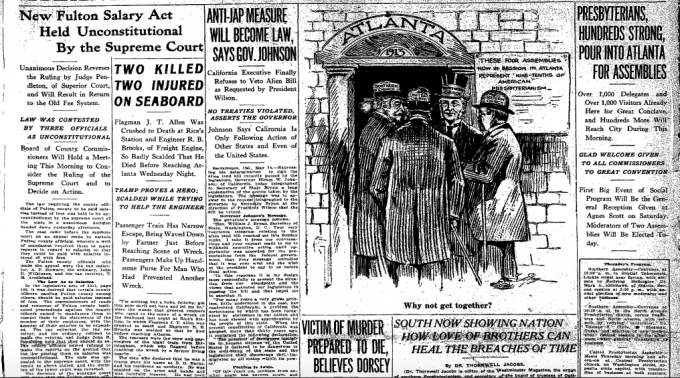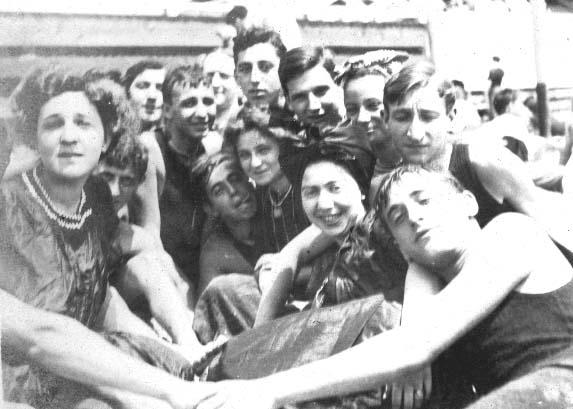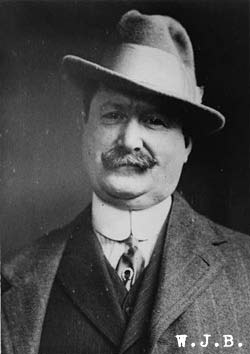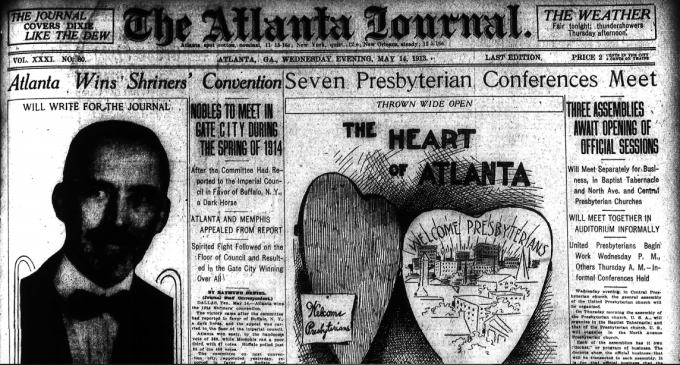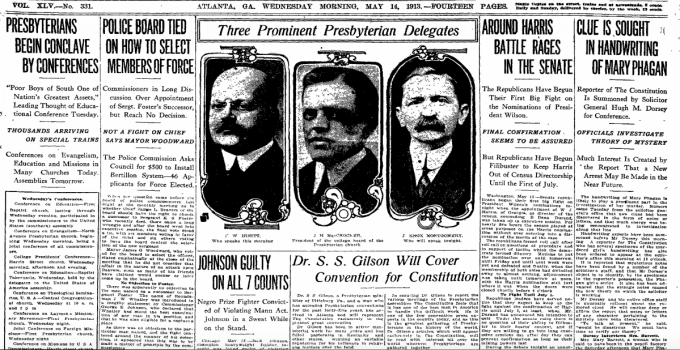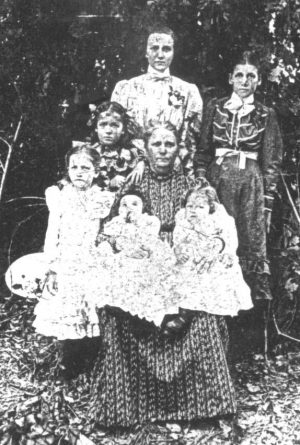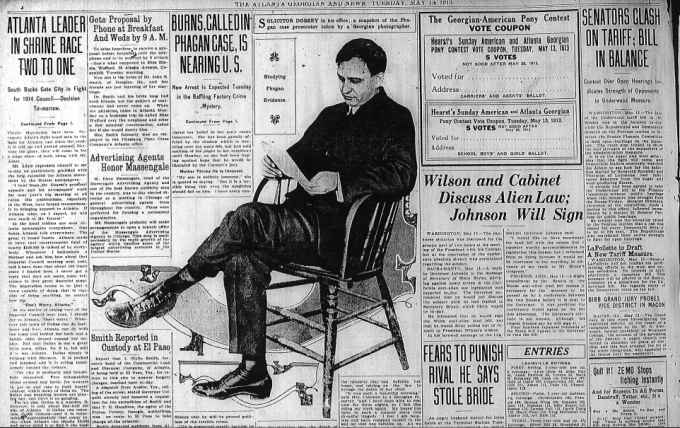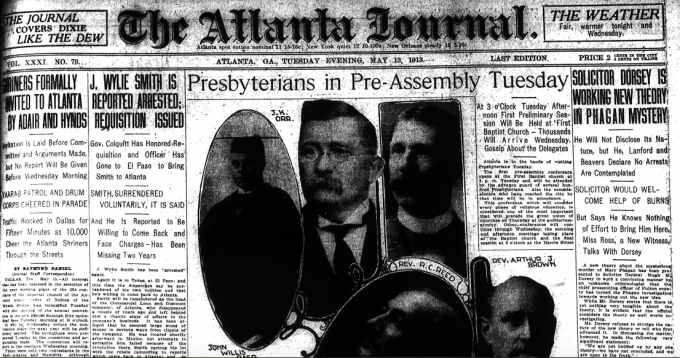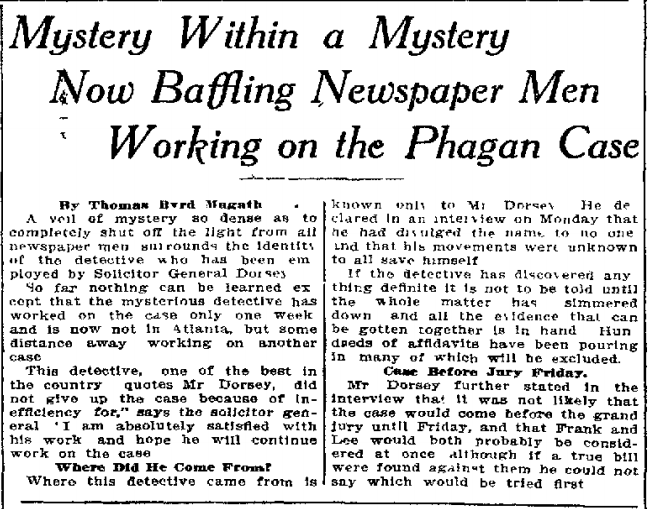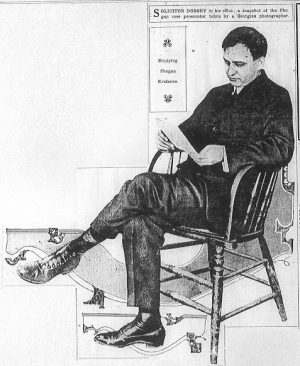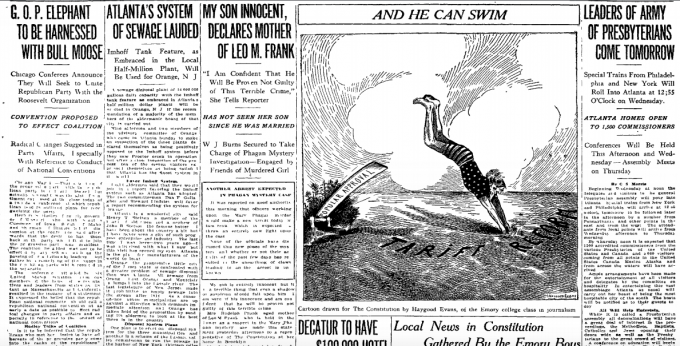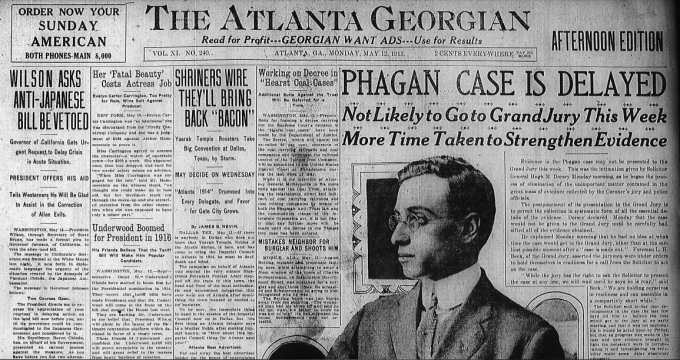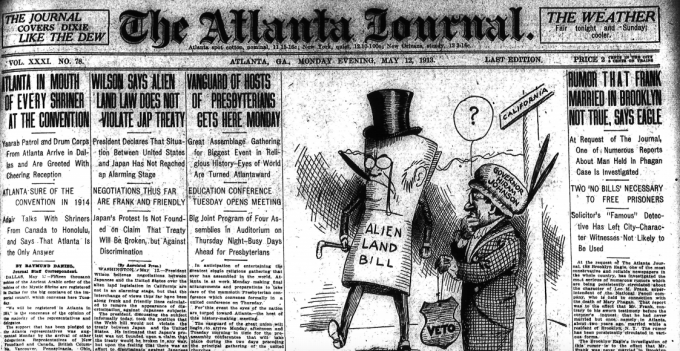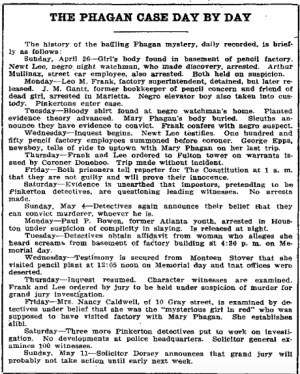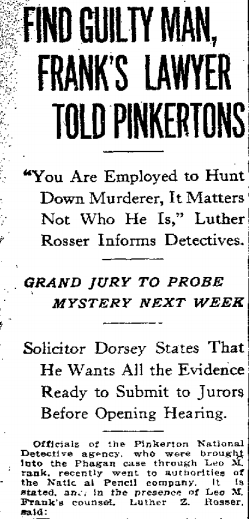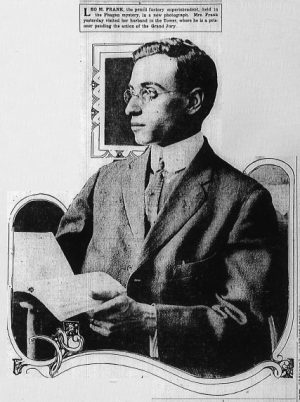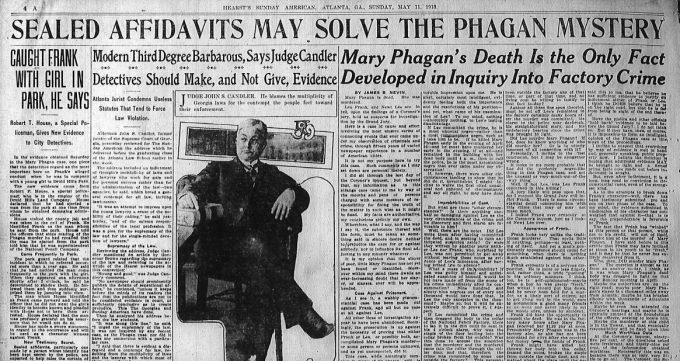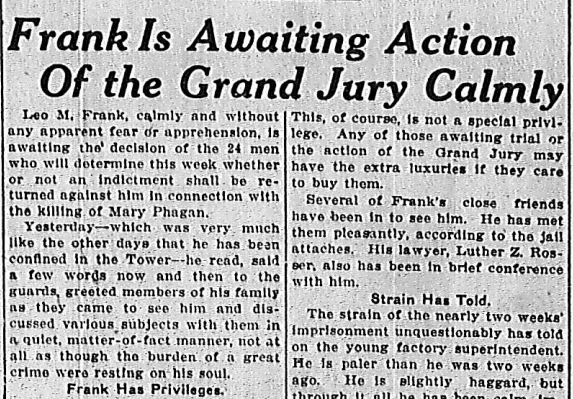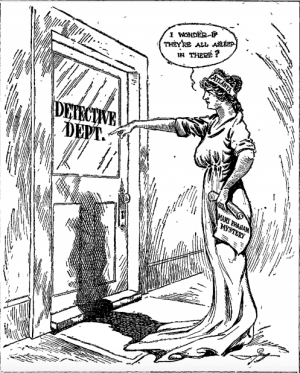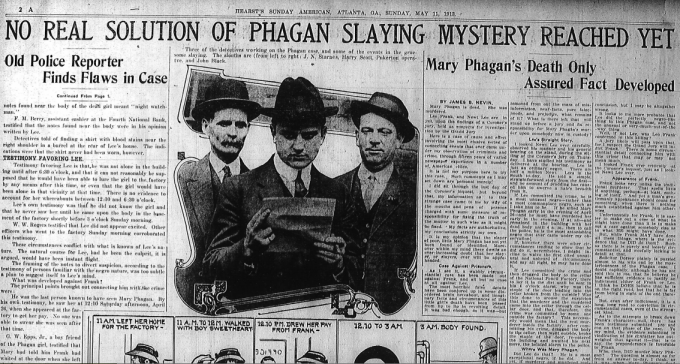Another in our series of new transcriptions of contemporary articles on the Leo Frank case.
Atlanta Constitution
Thursday, May 15th, 1913
Identification Slip Carried by Mary Phagan in Her Pocketbook Causes Theory That the Victim Had Been Threatened With Violence.
Either threatened with death or warned by some dread premonition of an untimely end, Mary Phagan is believed by Solicitor Dorsey to have prepared for her tragic fate by writing the identification slip discovered hidden in a compartment of the metal pocketbook which she carried daily.
The slip was given the solicitor Wednesday morning by a reporter for The Constitution. The reporter also made an authorized statement of the source from which it was obtained. It was given him by J. W. Coleman, step-father of the girl victim.
The slip was written six days before the murder. Her parents have never known her to have possessed such an article. Its presence in her pocketbook is said by them to be as mysterious as her death. Mr. Dorsey values it highly.
Bases New Theory On the Slip.
On it he already has based a plausible theory. Members of his staff have been assigned to investigation of the motive which impelled the slain girl to strive so thoroughly, as she endeavored in the mysterious slip, to establish her identification in case of emergency. Continue Reading →

